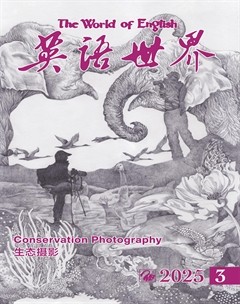【导读】作者姚克,原名姚志伊,字莘农,祖籍浙江余杭,中国著名戏剧家、电影编剧、翻译家,20世纪30年代初致力于优秀外国文学作品的介绍和翻译。1936年,他协助斯诺翻译出版《活的中国》(Living China);1936年7月起,担任上海英文刊物《天下月刊》(T’ien Hsia Monthly)编辑,先后把曹禺话剧《雷雨》、昆剧《贩马记》和京剧《打渔杀家》等译成英文,还翻译出版了萧伯纳的剧本《魔鬼的门徒》及奥尼尔的《推销员之死》,后者获海外作家董桥先生、翻译家兼翻译研究家思果先生等人的高度评价。姚克为沟通中西文化做出了卓有成就的贡献。
本文刊载于1933年4月7日的英文日报The North-China Daily News[《字林西报》,前身为North-China Herald(《北华捷报》),是英国人在中国出版的历史最久的英文报纸,由英国商人在上海创办]。在文中,姚克就新文学运动的发展趋势和未来发表了个人看法,其中论及20世纪30年代的各大文学流派、白话文的发展、翻译在其中发挥的作用。历史证明,这些分析不乏真知灼见,体现了姚克独到的洞察力和前瞻眼光。无论在中国现代文学研究还是翻译研究领域,该文均具有重要的史料价值。
Sixteen years have elapsed since Dr. Hu Shih wrote his famous essay, “Some Suggestions for the Reform of Chinese Literature,” and thereby brought about a revolution in China’s realm of letters. The age-long authority of the classical school was overthrown and the new literati have been busily engaged ever since in laying the foundations of an ivory tower for pei hua, the vernacular. However, the builders of the tower are so divided among themselves that it is as yet uncertain what the tower will look like upon completion. It may turn out to be a sort of Temple of Heaven with a fresh coat of paint, or a reinforced concrete skyscraper with a Chinese roof, or an entirely new type of architecture that reflects the genius of the East. One can never tell. Yet, in the light of its present tendency, it is not impossible to envisage the tower with the mind’s eye, however imaginary it may be.
十六年前,胡适先生发表著名文章《文学改良刍议》,掀起了中国文学界的一场革命。古典主义学派长期占据的权威地位被推翻,此后新派文人忙于为白话奠定象牙塔的基础。不过这座塔的建造者之间分歧很大,以至于还不确定塔建成后会是什么样子。它可能是一座粉刷一新的天坛,或者是带有中式屋顶的钢筋混凝土摩天大楼,抑或是体现东方智慧的全新建筑。谁也说不清。然而,从其目前的趋势来看,无论多么虚无缥缈,在脑海中构想这座塔也并非不可能。
The New Literary Movement is, in fact, a twofold revolution. It involves the change not merely of classical literature into pei hua but of old ideas into new. In other words, it is a revolution both in literary style and in thought. With these two phases combined, it is more complex than all previous revolutions recorded in the history of Chinese literature. The conditions that brought about the change and the motive power behind it need not be discussed in a short article. Let us rather devote our attention to its actual development, taking up the two phases of the revolution separately, for the sake of clarity.
新文学运动实际上是一场双重革命,不仅涉及文言文向白话文的转变,而且还涉及旧观念向新观念的转变。换句话说,这是一场文体和思想的革命。这场双重革命,要比中国文学史上所记载的历次革命都要复杂得多。促成这一变化的条件及其背后的动因无须在一篇短文之中探讨。为了清楚起见,让我们不妨先关注它的实际发展,分别讨论革命的两个阶段。
Change in literary style
文体变迁
The literary style of the pei hua has been influenced by foreign literature since the dawn of the New Literary Movement. This is not at all astonishing when we consider the fact that the movement was initiated by a group of protagonists who were either returned students or modern educated scholars. Nevertheless, the pioneer pei hua writings such as appeared in “The New Youth,” “The Weekly Review,” “The Renaissance,” and other magazines were quite free from the defect of the foreign and unintelligible expressions which come into use later. They betray traces, however, of alien influence; and, as the movement proceeds, the influence gradually grows in intensity. Recently, it is true, its growth has been slackening down, but it is safe to say that it will never lose ground entirely.
新文学运动兴起以来,白话文的文体就受到外国文学的影响。





